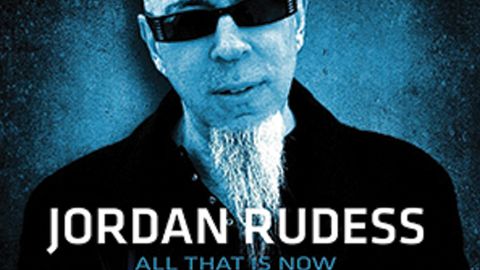He’s renowned for his audacious keyboard work with Dream Theater, but there’s far more to Jordan Rudess’s musical persona than his on-stage keytar duels with guitarist John Petrucci.
Rudess is a classically trained pianist and the instrument remains a daily channel for his creative desires. Indeed, on such well-respected albums as Notes On A Dream, his solo works away from his DT ‘day job’ have often centred on the more stripped back and melodic elements.
Consequently, it’s unsurprising that these two albums have classical and orchestral roots, and demonstrate to any naysayers that his talent extends far beyond some of his more nimble fingered excesses. All That Is Now is a solo piano album that has grace in abundance and an exquisite charm that will captivate both lovers of classical music and the more progressively minded.
In the past, there have been those who have dismissively suggested that on previous recordings, Rudess captured his superb technical ability at the expense of an inherent passion and soul. There’s also the central problem that solo piano music can often come across as lounge, simply existing to enhance ambiance. Neither accusation applies here, as this is an album that plainly demands attention. The Telling and Looking Beyond manage to remain both powerful and subtle, with striking, opulent melodies showcasing his masterful technique. The same can be said of Flash Of Hope, reminiscent of Rick Wakeman’s finer moments. The lack of electricity, vocals and his more explosive, trademark keyboard riffs might deter some DT-heads, but this is still a passionate and hugely rewarding listen.
In contrast, Explorations is rather more adventurous, supplementing that aforementioned classical flair with an orchestra complete with strings and brass section. The album’s lengthy title track is split into three segments, each of which seamlessly mix together all the elements which have made Rudess so well regarded. There are moments of soothing strings, interspersed with DT-esque keyboard runs, and dark, domineering brass. Indeed, such is the depth of the music – notably on The Untouchable Truth – that there’s plenty to suggest that if Rudess ever tires of the Dream Theater merry-go-round, a lucrative career creating film scores beckons. Similarly rounded, Over The Edge is Rudess’ deliberate attempt to write the “craziest prog piece ever”. He comes pretty close, and these two mesmerising collections will only enhance his already soaring reputation.
RICH WILSON ** **

